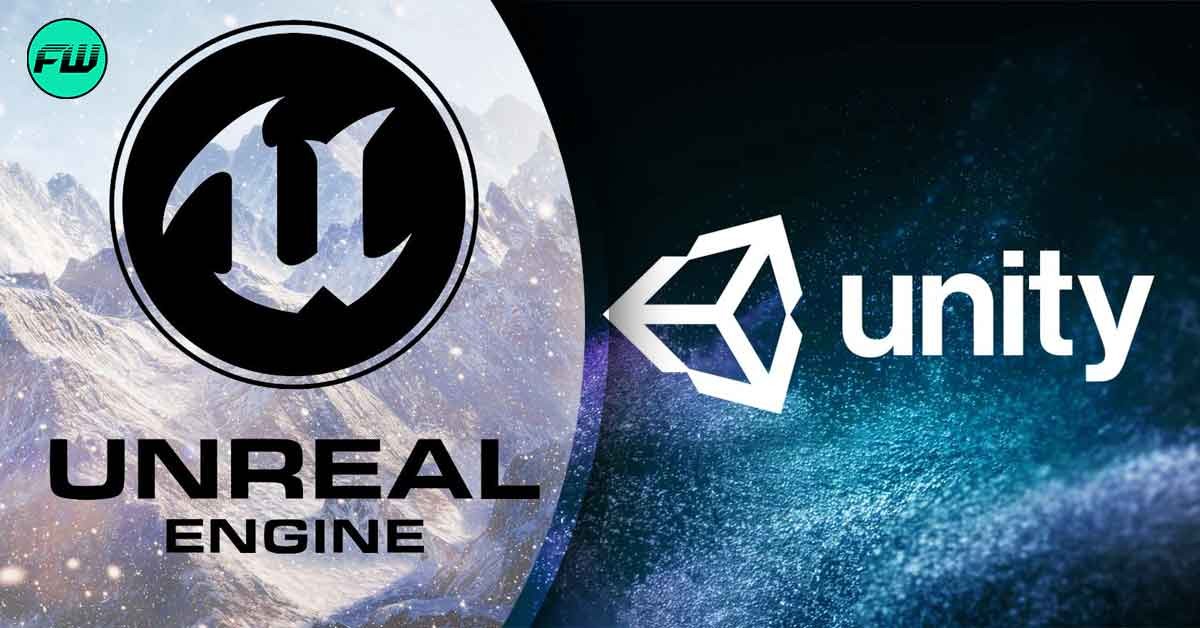Artificial intelligence and creativity have a relationship that is not at all black or white. Creators in support of tools that let them be creative without the hindrance of time-consuming tasks are not afraid to showcase their newfound talent. On the other hand, audiences and artists alike aren’t too convinced about the AI overhaul that’s been plaguing communities worldwide.
From the Writer’s Strike, to Unity’s recent remarks about runtime fees, to Epic Games laying off employees, the creative community is clearly worried about the future of game development. The freedom that comes with crafting interactive experiences thrives on authenticity. However, the nature of it seems to be changing into something more dynamic and automated. Even if we, as the community of gamers, are ready to accept these changes, is it good for the future of game development?
Unity and Epic Games – One Engine’s Trash May Be Another AI’s Treasure
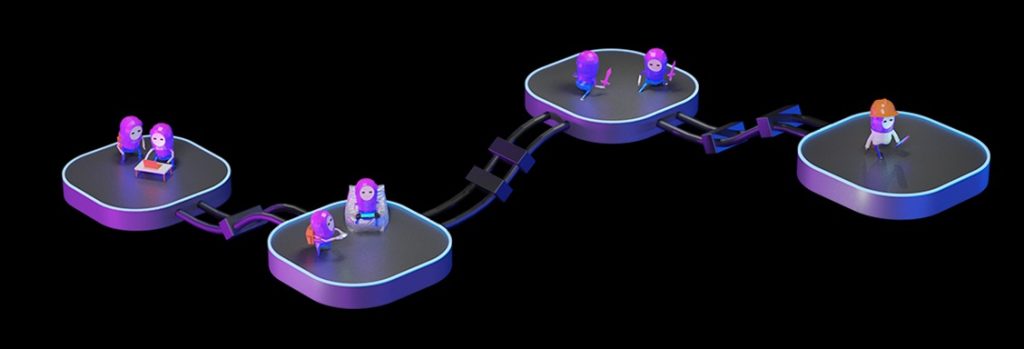
Unity’s recent stunt made the gaming community gasp in surprise. Their recent policy asked developers to pay a ‘runtime fee’. According to this policy, games and projects being developed using the current version of Unity won’t be paying a fee unless they upgrade to a newer version. However, those paying this feel will choose between coughing up 2.5% of the revenue share, or an amount based on the number of people trying out the game.
This statement received an obvious backlash from the community, which drove Unity to make newer changes to its policy.
We have heard you. We apologize for the confusion and angst the runtime fee policy we announced on Tuesday caused. We are listening, talking to our team members, community, customers, and partners, and will be making changes to the policy. We will share an update in a couple of…
— Unity (@unity) September 17, 2023
After a revision of this policy, there will be no runtime free for any game being developed on the current version of the game engine. Unity Personal will stay free, and the revenue margin beyond which users need to upgrade their game engine has been raised to $200,000.
In a hypothetical scenario, consider this policy unchanged. Imagine if game engines and developers have to flush out content under the threatening dilemma of making profits and creating heartfelt video games. Unity is one example of the uproar caused in the game dev community. In another part of the world, Epic has caused a debacle too.
Also Read: How AI Is About To Change Video Game Development Forever
Epic has laid off close to 900 hardworking employees. Why? According to them, economic inflation is to blame. They wish to cut costs without sacrificing the quality of their games. Especially with the ongoing popularity of Fortnite and its future updates.
This morning, rumors were flying as Epic disabled Slack for employees ahead of the news. Laid-off Epic employees will receive six months severance and health benefits. All-hands meeting happening shortly. Story being updated as I learn more: https://t.co/BK1oVRgCba
— Jason Schreier (@jasonschreier) September 28, 2023
There is no denying that these Epic ex-employees have had their share of talent and value under a big question mark. This brings us back to the empowerment of artificial intelligence. If real people aren’t contributing to ongoing (or new) projects from a AAA studio, who is? We speculate AI’s evolving abilities as creative practitioners.
When we have a community of disheartened developers, designers and writers, it’s likely to see mediocre creators make use of AI tools to let game engines build their own games.
The Popularity of Artificial Intelligence – Comforting or Threatening?
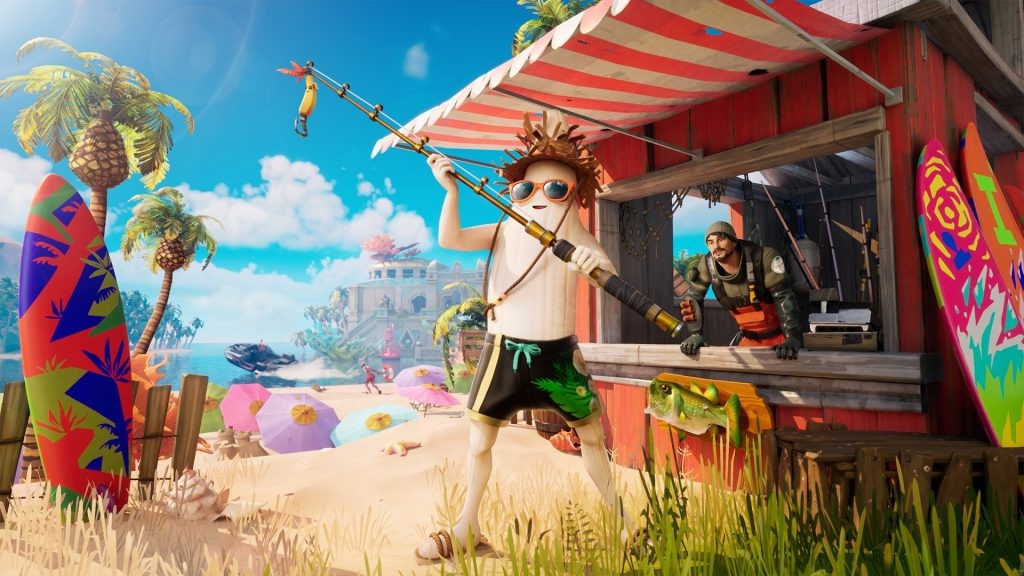
If you take a look at the kind of art AI is capable of making at the moment, you’ll either laugh it off or reward it with an impressed smirk at best. But to have a community of millions playing a video game created by AI? The scenario isn’t too farfetched, but our lack of awareness around it should be a cause for concern.
Keeping the larger question of ethics aside, let’s focus on quality for a moment. For instance, Ubisoft is promoting its new AI tool called Ghostwriter. Under the sugarcoated lines of ‘helping writers be more efficient’, it is essentially taking a shot at replacing narrative designers and scriptwriters altogether. The YouTube video for the tool has enough dislikes to show the community’s contempt and pessimism regarding Ghostwriter, which is understandable considering recent debates around AI.
However, our concerns revolve more around quality. Yes, NPCs and side characters can word their generic thoughts in a few lines of text, but on a subconscious level, players notice these things. A large open world with dynamic characters doesn’t feel the same anymore, because an average gamer’s demand from modern games isn’t the same as it used to be.
For example, the NPCs in Red Dead Redemption 2 have unique routines and daily chores they go about, which have little to do with the game’s protagonist. Still, it defines the world’s lifelike resemblance and based on the player’s actions, the world responds accordingly.
The recent layoffs at Epic pushes us to think about the creative minds behind Fortnite. You see, what started as a co-op survival game called Fortnite: Save the World, later turned into one of the most battle royale games of all time. However, Epic kept creators in mind and unleashed a tool called Unreal Editor for Fortnite (UEFN).
UEFN allows creative minds to build their own games and make them playable through a separate Fortnite Creative. The community applauds the collective use of Unreal Engine 5 to empower rich experiences, but the truth is that larger corporations like Epic have the ultimate control over how these experiences are carried over to the general public. Unity gave a hint around it, right?
Now, coming to the ethics of it, creative practitioners need a steady source of income. Whether it is writing a few dull (yet, human) lines of NPC dialogue or QA testing half-baked projects, someone (not something) needs to make sure the game feels rich and vibrant. More importantly, alive.
A Future-Focused Approach to AI and Game Design
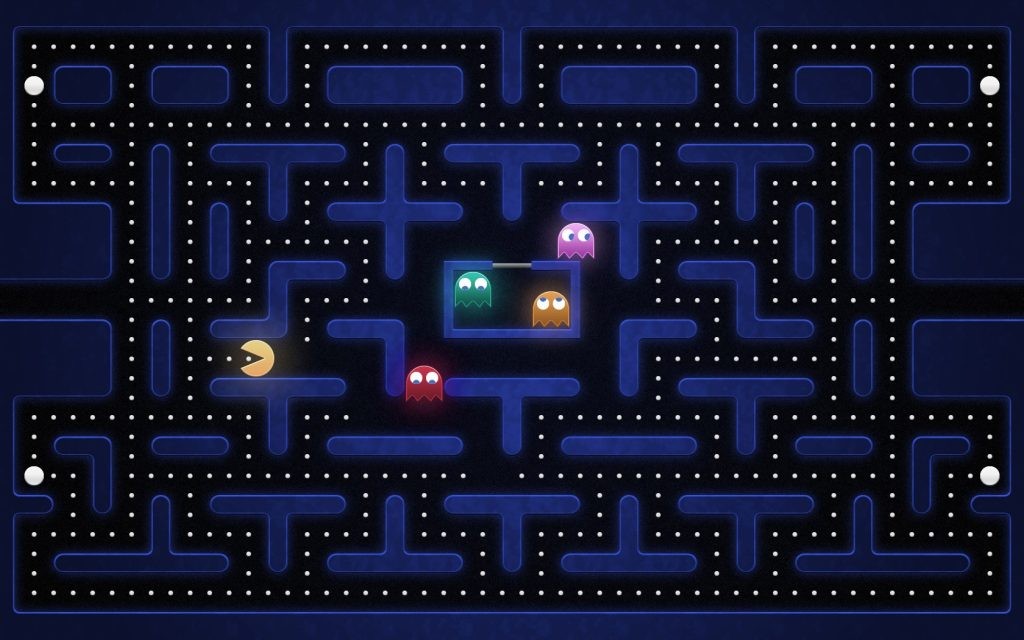
There’s a tool called GameGAN that promises to design intelligent game mechanics without manually writing every single prompt. It’s a subtle change of direction from learning how to code and writing things down traditionally, to training an AI module to do it for you.
For instance, Nvidia recreated the legendary Pac-Man with the use of neural networks. GameGAN wrote the rules and dynamics behind the various interactions that take place in the game world. For a second, you’re immersed in an arcade game from your childhood days. For another, it hits you how closely AI can recreate your core memories.
Such AI tools don’t necessarily pose a threat in their entirety. Rather, new game developers and designers can execute their ideas which wouldn’t have been possible without writing several lines of code and learning a game engine from scratch. Meanwhile, experienced creators can assign simpler tasks to AI.
Speaking of generative AI (popular tools like DALL-E 2 and Midjourney), the founders of tools that aim at ‘making things easier’ for the daily creative practitioner, try to balance the ease of AI tools and rely entirely on them. Kaedim is one such organisation that tries to keep this value alive. In the words of Konsantia Psoma:
“Games, and more specifically, art for games, are becoming more and more expensive and time-consuming. I believe that AI-powered software that is developed to help the pain points of game developers can help bring down costs and time while maintaining the high-fidelity of graphics.”
Generative AI has the power to navigate algorithms to turn 2D images into 3D models, and enables different pieces of art to potentially learn from each other. A sense of threat takes place when players aren’t able to point out AI-generated experiences from those that have been built by machine learning.
“We started https://t.co/yOyffcB4am to build the tools and technology we always wished we had as game developers," said Christoffer Holmgård, CEO and Co-Founderhttps://t.co/vlWUNDaOdZ
— Griffin Gaming Partners (@Griffin_GP) November 9, 2022
In another example, modl.ai is a tool that creates bots for multiplayer experiences. It also detects bugs and is able to design levels in match-three games. The CEO of modl.ai, Christoffer Holmgård, spoke from his experience with game development and common obstacles developers face:
“I think some of it is motivated by our own game development experience, and just thinking, ‘what are the frustrating or difficult parts?’ Or ‘where would you wish you had more time or more resources when you’re building a game?’ When we started the company and we came up with some of these ideas, we tried mapping it to, ‘what are the things that artificial intelligence could actually do for us right now?”
Within the context of Unreal Engine 5, the tool is able to build bots that are clever enough to understand basic tasks. They can detect walls and even train themselves to pick up items (like weapons) and have a loadout ready. However, as impressive yet simple as it may seem, the developer has full authority over these kinds of tasks. Game devs can adjust skill levels or assign specific tasks based on the bot’s job or personality traits.
Game designers are often handed the task of thinking and planning the game’s rules, objectives and so on. On the other hand, repetitive activities like QA may take hours, weeks or months on end to make sure the game is functioning properly. In this case, powerful AI tools can sort out such tasks and leave the job of planning/strategising to game devs and designers.
Can AI understand the importance of imperfections, versatility and a sense of community?
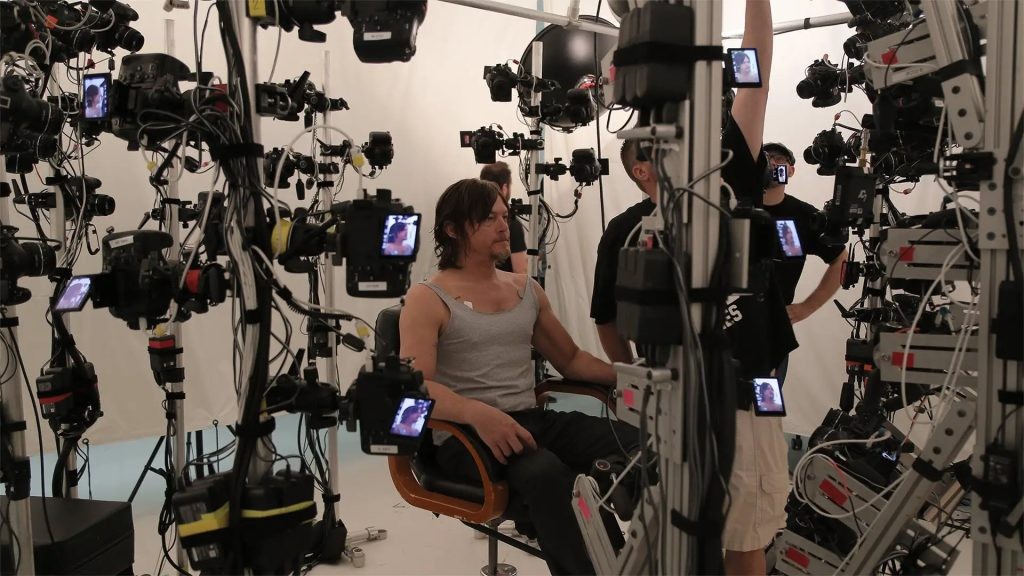
In Hideo Kojima’s Death Stranding, the foundation of the game’s narrative is built on people looking out for one another. A sense of empathy drives the player to help and leave behind important tools for other players to come. In that sense, the game mechanics helped build a sense of community among Death Stranding players, often pushing the philosophical limits of a game and delivering a strong message about human connections.
When we speculate the number of bugs, glitches and imperfections around game development – a lot of it is frustrating and often humiliating to everyone in the project’s involvement. In the grander scheme of things, it also raises a sense of hope and optimism for better things to come. Questions of what we can we learn and what more we can add build a healthier future for the gaming community.
If we combine our understanding of the capabilities of modl.ai and GameGAN, engines like Unreal Engine 5 and Unity will serve as the canvas for a mix between authentic forms of game scripting and AI-generated bits. These include bots, assets, and potentially a few other game mechanics. It’s up to devs and designers how they take this relationship forward. Unless, of course, corporations come out with new policies regarding the same.
However, with AI’s limited sense of player’s psychology, it will seldom take the human-to-human conversation around needs and wants into conversation. At most, AI tools will learn from past projects and close the problematic gaps in game development. Creative practitioners will use these tools to make the most of their ideas. As long as we are having heated arguments around larger corporations monetizing (and justifying) the use of AI tools, the need for human-based creative experiences will always stay in demand.
Source: Learning to Simulate Dynamic Environments with GameGAN | Game Developer
Follow us for more entertainment coverage on Facebook, Twitter, Instagram, and YouTube.

